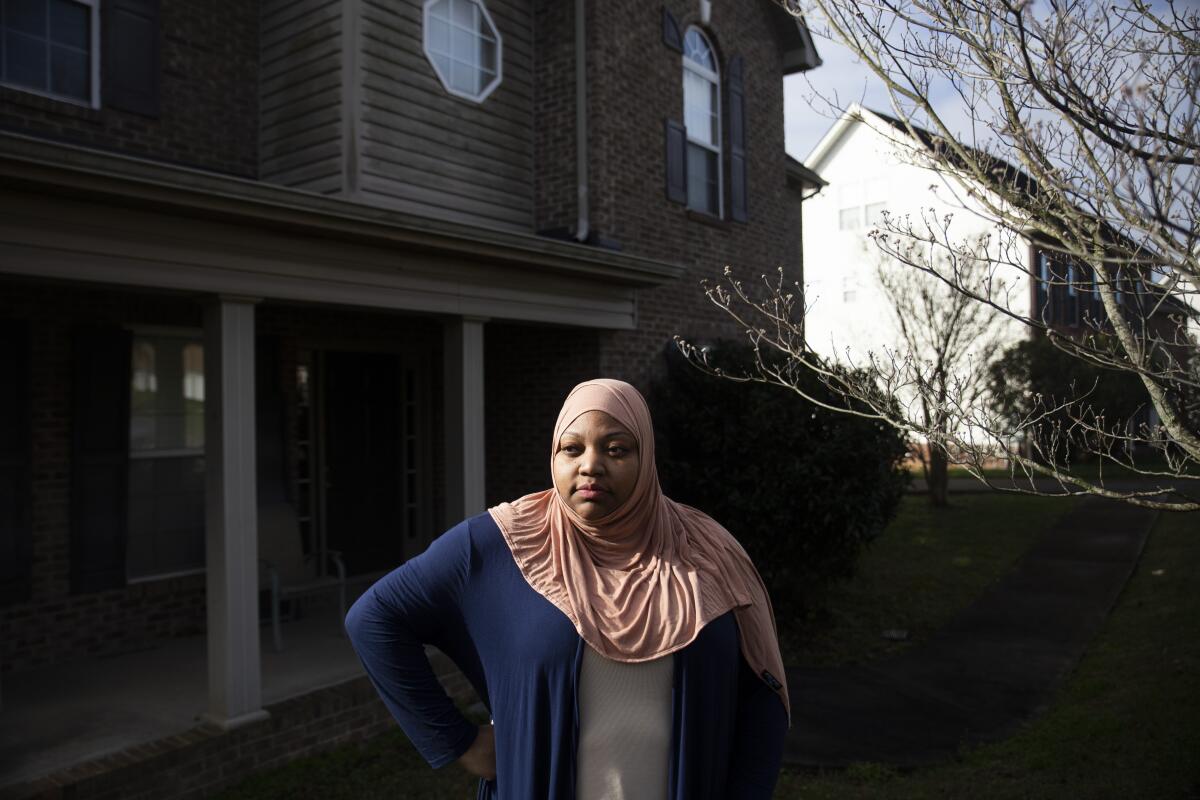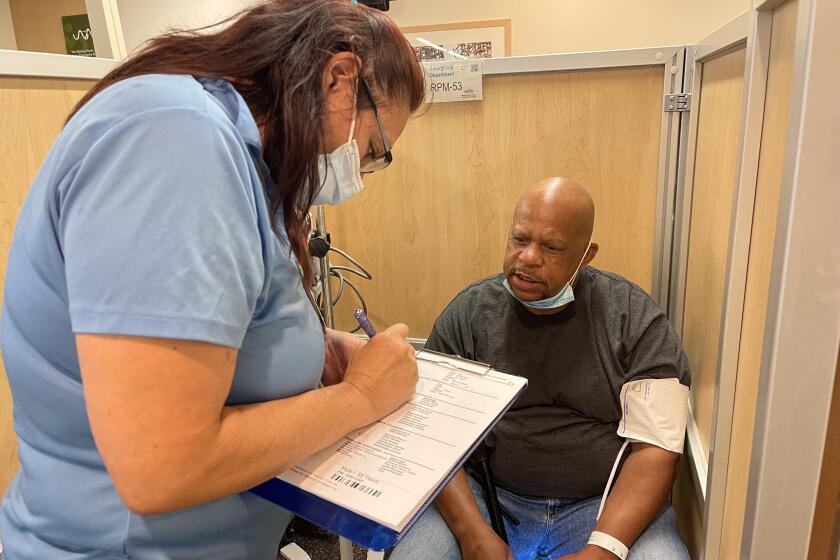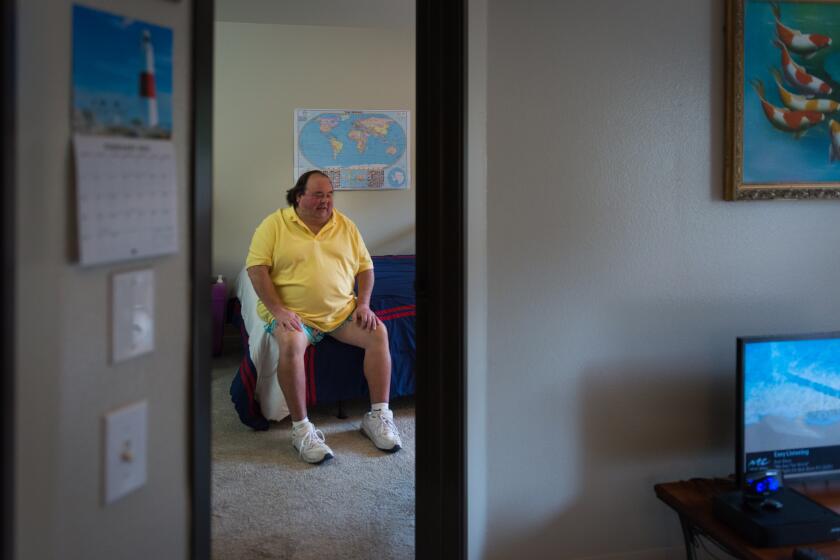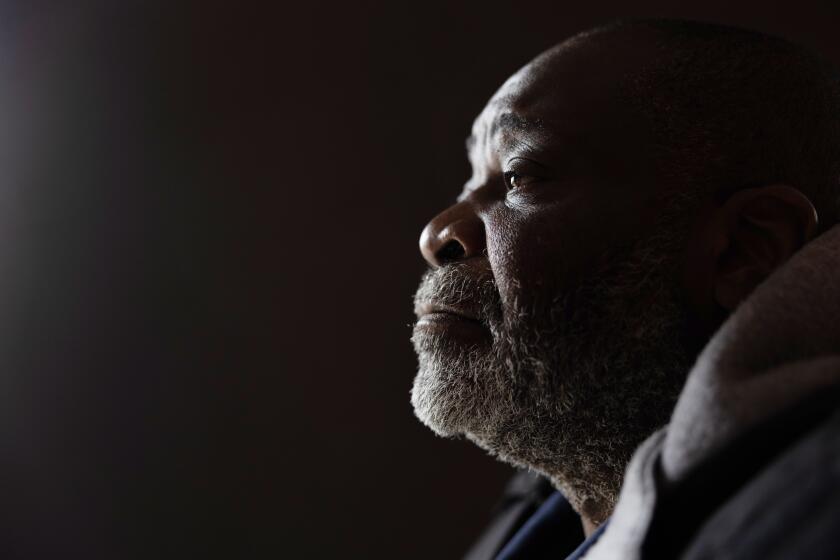States try to seize Medicaid patients’ homes after they die to recoup healthcare costs

WASHINGTON — As Salvatore LoGrande fought cancer and all the pain that came with it, his daughters promised to keep him in the white, pitched roof house he worked so hard to buy many decades ago.
So, Sandy LoGrande thought it was a mistake when, a year after her father’s death, Massachusetts billed her $177,000 for her father’s Medicaid expenses and threatened to sue for his home if she didn’t pay up quickly.
“The home was everything” to her father, said LoGrande, 57.
But the bill and accompanying threat weren’t a mistake. Rather, it was part of a routine process the federal government requires of every state: to recover money from the assets of dead people who, in their final years, relied on Medicaid, the taxpayer-funded health insurance for the poorest Americans.
A person’s home is typically exempt from qualifying for Medicaid. But it is subject to the estate recovery process for those who were over 55 and used Medicaid to pay for long-term care such as nursing home stays or in-home healthcare.
MLK Community Hospital in South Los Angeles is surrounded by poverty and homeless encampments. Will Newsom’s health initiative improve access to care?
This month, a Democratic lawmaker proposed scuttling the “cruel” program altogether. Critics argue the program collects too little — roughly 1% — of the more than $150 billion Medicaid spends yearly on long-term care. They also say many states fail to warn people who sign up for Medicaid that big bills and claims to their property might await their families once they die.
LoGrande says that’s how she ended up in a two-year legal battle with Massachusetts after her father died. Several years before he died in 2016, she had turned to a local nonprofit for advice on caring for him. The group suggested she sign him up for Medicaid. She remembers asking about the house, but was assured the state would only seek the house if it sent her father to a nursing home.
“He never would have signed on with anything that would put his home in jeopardy,” she said.
For years, her father got an annual renewal notice from the state’s Medicaid office. She says it wasn’t until after his death, when the state’s demand for $177,000 arrived, that she saw the first bill for his care, which included a brief stint in the hospital for pain from cancer, medications and hospice.
“That’s what ripped my guts out,” LoGrande said. “It was dishonest.”
The state settled with the LoGrandes in 2019 and released its claim on the house.
Gov. Gavin Newsom is making a bold push for Medicaid health plans to provide more housing support. He argues it’s cheaper to pay for rent than to allow homeless people to fall into crisis.
State policies around this recovery process vary widely, according to a 2021 report from the Medicaid and CHIP Payment and Access Commission, which makes policy recommendations to Congress.
Some states will put a lien — a legal claim — on a home while others don’t. Meanwhile, some Medicaid offices try to recoup all medical costs from patients, like doctor visits or prescriptions, while others just pursue the costs for long-term care. Alaska and Arizona pursued just dozens of properties in recent years while other states go after thousands of homes, totaling hundreds of millions of dollars.
New York and Ohio topped the country for such collections, recovering more than $100 million combined in a single year, a Dayton Daily News investigation found.
An investigation into the Kansas program, released recently by the Health and Human Services Department inspector general, found that program was cost-effective — yielding $37 million while only spending $5 million to recover the money, But the state didn’t always collect the money from estates that were eligible.
Last month, a foundation for one of the industry’s health insurance giants called on Massachusetts to overhaul its process, which includes collecting reimbursement for most Medicaid costs, beyond the federal government’s minimum requirement to recover long-term care expenses. The Blue Cross Blue Shield Foundation of Massachusetts recommended the state Legislature pass a law that would prohibit those additional collections.
Estate recovery “has the potential to perpetuate wealth disparities and intergenerational poverty,” said Katherine Howitt, a Medicaid policy director with the foundation.
California is the first state permitted to provide Medicaid to people behind bars, including those with mental illnesses and substance use disorders.
In Tennessee, which recovered more than $38.2 million from more than 8,100 estates last year, Imani Mfalme found herself in a similar predicament after her mother’s death in 2021.
As her mother’s early-onset Alzheimer’s worsened, Mfalme continued to care for her. But in 2015, when Mfalme was diagnosed with breast cancer and needed a double mastectomy, she started looking at other options. A local Medicaid representative told her to drain her mother’s bank accounts — money Mfalme used to pay for her mom to stay at an assisted-living facility — so her mother would qualify for the program.
The representative, Mfalme said, never mentioned that she could be forced to sell her mother’s house to settle her mother’s bill with Medicaid once she died.
Now, Tennessee’s Medicaid office says she owes $225,000 and the state is seeking a court order that would require Mfalme to sell the house to pay up.
Mfalme, now 42, said she wants to pay what she can, but the house is a particular pain point. Her mother, a Black woman, purchased her dream home in Knoxville after she won a landmark discrimination lawsuit against her former employer, Boeing, for paying her less than her male co-workers.
“She fought hard for equal pay and equal rights. Just to see that ripped away just because she was sick and I was sick, it’s just absolutely devastating,” Mfalme said.
Centene, which now runs the program, has been accused of overbilling nine other state Medicaid programs and is now under investigation by California.
TennCare, Tennessee’s Medicaid office, said in an email to the Associated Press that it would not comment on specific cases.
The Medicaid and CHIP Payment and Access Commission’s report recommended that Congress reverse the 1993 law that required states to recover money from estates, instead making it optional.
Earlier this month, Democratic Rep. Jan Schakowsky of Illinois reintroduced legislation that would end the federal government’s mandate. Schakowsky believes the rule is a losing proposition both for families, who lose their homes, and for taxpayers, who don’t see big returns from the recovery efforts.
“It is one of the most cruel, ineffective programs that we see,” Schakowsky told the AP. “This is a program that doesn’t work for anybody.”
In a gridlocked Congress, where some Republicans are clamoring to trim Medicaid entitlements, the bill is unlikely to garner the bipartisan support needed to become law.
There’s at least one person who acknowledges the rule isn’t working: the man who engineered it.
Many people don’t know about the decades-old mandate, which was intended to encourage people to save for long-term care — or risk losing the equity from their homes, explained Stephen Moses, who now works for the conservative Paragon Health Institute.
“The plan here was to ensure that people who need long-term care can get it but that you plan ahead to be able to pay privately so you don’t end up on the public healthcare program,” Moses said.
Seitz writes for the Associated Press.
More to Read
Sign up for Essential California
The most important California stories and recommendations in your inbox every morning.
You may occasionally receive promotional content from the Los Angeles Times.













